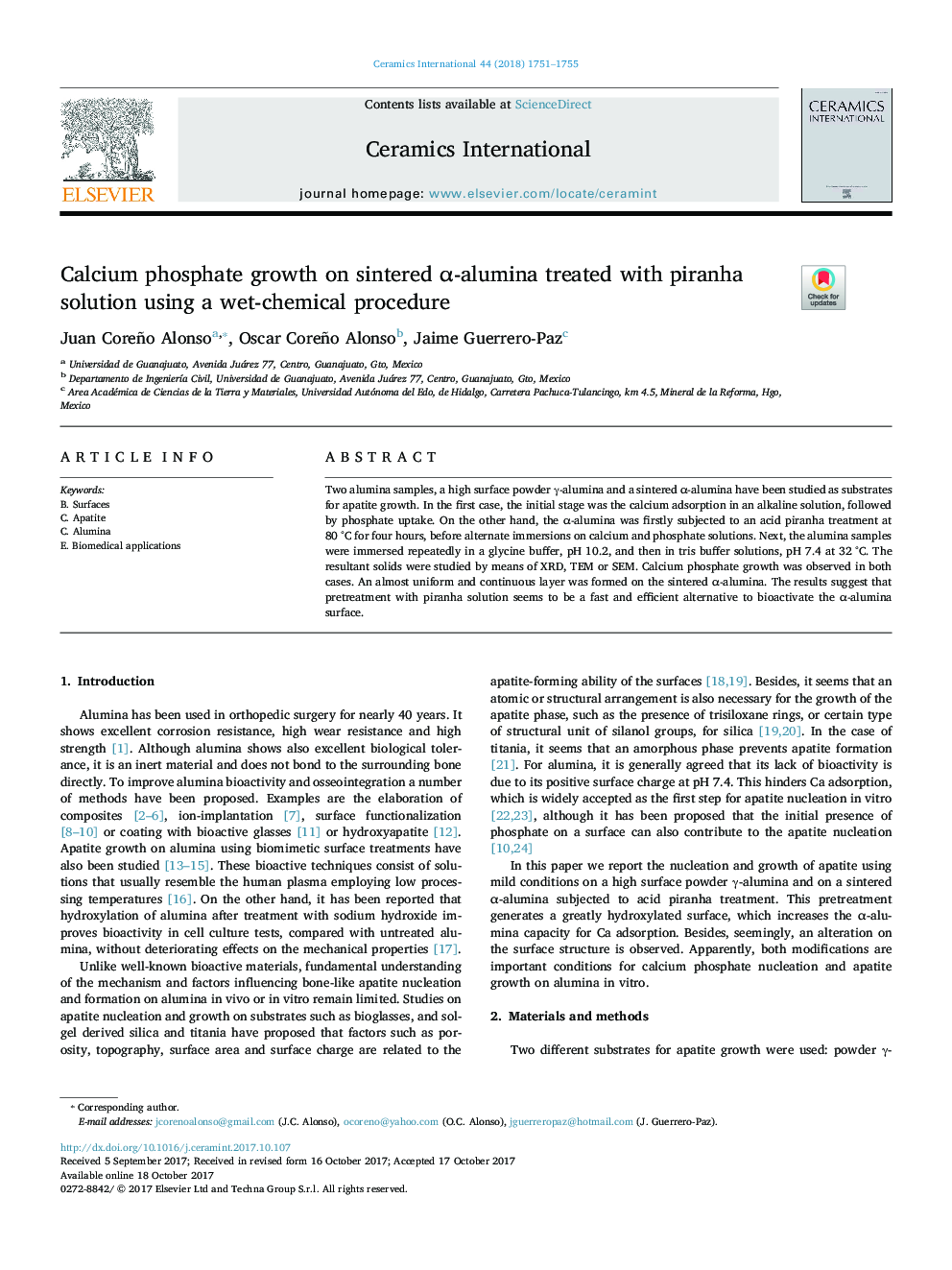| Article ID | Journal | Published Year | Pages | File Type |
|---|---|---|---|---|
| 7889024 | Ceramics International | 2018 | 5 Pages |
Abstract
Two alumina samples, a high surface powder γ-alumina and a sintered α-alumina have been studied as substrates for apatite growth. In the first case, the initial stage was the calcium adsorption in an alkaline solution, followed by phosphate uptake. On the other hand, the α-alumina was firstly subjected to an acid piranha treatment at 80 °C for four hours, before alternate immersions on calcium and phosphate solutions. Next, the alumina samples were immersed repeatedly in a glycine buffer, pH 10.2, and then in tris buffer solutions, pH 7.4 at 32 °C. The resultant solids were studied by means of XRD, TEM or SEM. Calcium phosphate growth was observed in both cases. An almost uniform and continuous layer was formed on the sintered α-alumina. The results suggest that pretreatment with piranha solution seems to be a fast and efficient alternative to bioactivate the α-alumina surface.
Related Topics
Physical Sciences and Engineering
Materials Science
Ceramics and Composites
Authors
Juan Coreño Alonso, Oscar Coreño Alonso, Jaime Guerrero-Paz,
